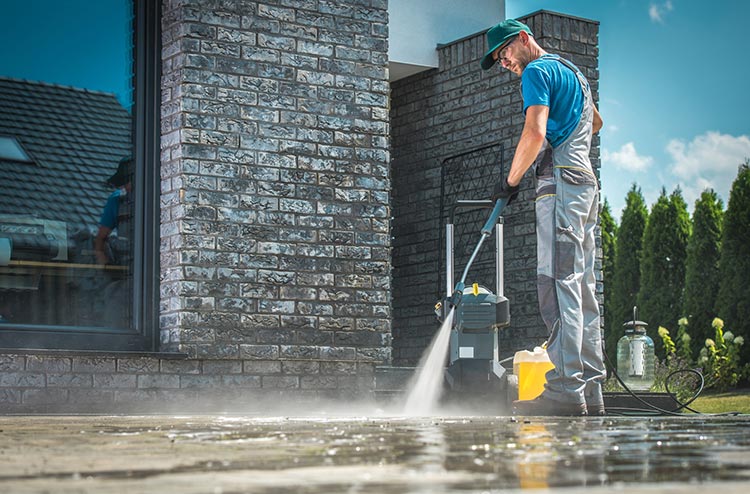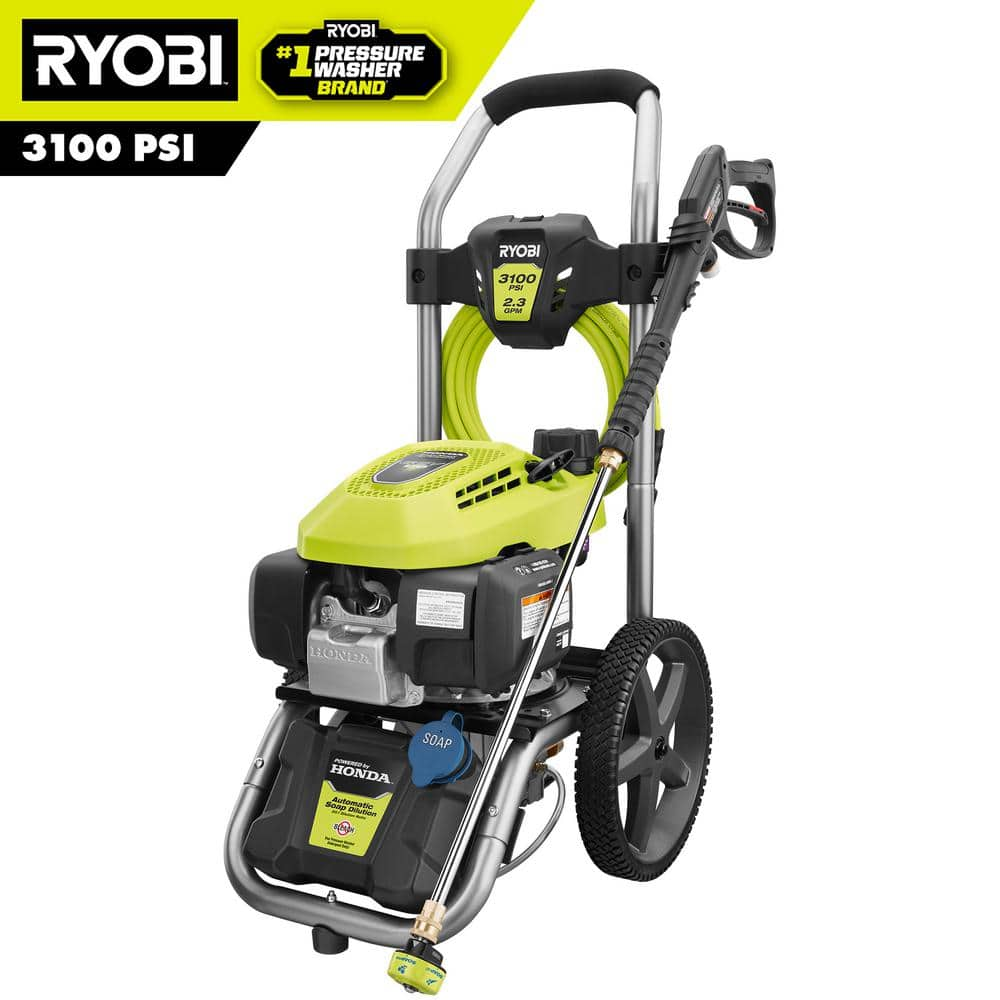GPM stands for Gallons Per Minute, a key measurement in pressure washers. It indicates the flow rate of water during operation.
Understanding GPM is essential for choosing the right pressure washer for your needs. This measurement directly impacts cleaning efficiency and time. A higher GPM means more water is used, which can enhance the cleaning process, especially for tough stains. However, too much water can lead to oversaturation and potential damage to surfaces.
Balancing GPM with pressure (measured in PSI) is crucial for effective cleaning. Whether tackling a driveway or washing a car, knowing the GPM helps ensure optimal performance. Make an informed choice by considering both GPM and PSI for your pressure washing tasks.
Page Contents
- 1 Introduction To Gpm In Pressure Washers
- 2 Measuring Gpm: A Technical Insight
- 3 Gpm’s Role In Cleaning Performance
- 4 Optimizing Efficiency With The Right Gpm
- 5 Selecting Pressure Washers By Gpm
- 6 Impact Of Gpm On Pressure Washer Accessories
- 7 Gpm And Environmental Considerations
- 8 Troubleshooting Common Gpm Issues
- 9 Frequently Asked Questions
- 10 Conclusion
Introduction To Gpm In Pressure Washers
GPM stands for gallons per minute. It measures water flow in pressure washers. A higher GPM means more water flows out. This helps in cleaning larger areas quickly.
Understanding the significance of GPM is essential. It affects how well dirt and grime are removed. A machine with higher GPM is better for tough jobs.
| Feature | GPM | PSI |
|---|---|---|
| Definition | Gallons per minute | Pounds per square inch |
| Focus | Water flow | Water pressure |
| Best for | Washing large surfaces | Removing tough stains |
Comparing PSI and GPM helps choose the right pressure washer. PSI measures pressure, while GPM measures flow. Both are important for effective cleaning.
Measuring Gpm: A Technical Insight
GPM stands for gallons per minute. This unit measures the water flow rate of pressure washers. A higher GPM means more water output. This is important for cleaning effectiveness.
Common standard units for GPM include gallons, liters, and cubic meters. Understanding these units helps in comparing different models. Most pressure washers list their GPM in their specifications.
| Unit | Equivalent |
|---|---|
| 1 GPM | 3.785 liters per minute |
| 1 GPM | 0.063 cubic meters per minute |
Measuring GPM can be done using several tools. A flow meter is a common device. It gives accurate readings of the water flow rate.
Another option is a bucket test. Fill a bucket of known volume and time how long it takes to fill. This method is simple and effective.
Gpm’s Role In Cleaning Performance
The GPM, or gallons per minute, measures water flow in pressure washers. Higher GPM means more water is used. This can speed up the cleaning process. Less time is spent on tough stains.
High GPM leads to quicker cleaning times. For example, a pressure washer with 4 GPM cleans faster than one with 2 GPM. This efficiency saves effort and energy.
On the other hand, higher GPM also means more water consumption. Using too much water can raise your bill. Choose the right GPM for your cleaning needs.
| GPM Level | Cleaning Time | Water Use |
|---|---|---|
| 2 GPM | Slower | Less water |
| 4 GPM | Faster | More water |

Credit: m.youtube.com
Optimizing Efficiency With The Right Gpm
GPM stands for gallons per minute. It measures water flow in pressure washers. Choosing the right GPM is key for efficient cleaning. Higher GPM means more water used. This helps clean large areas quickly.
For light tasks, like washing cars, a lower GPM works well. It saves water and prevents damage. For heavy-duty tasks, like cleaning driveways, a higher GPM is better. It removes tough dirt and grime effectively.
Balancing power and water use is important. A high GPM can waste water if not needed. Matching GPM to the task helps achieve great results while saving resources.
Selecting Pressure Washers By Gpm
GPM stands for gallons per minute. This number tells you how much water a pressure washer uses. A higher GPM means more water and usually more cleaning power. For residential cleaning, a GPM of 1.5 to 2.5 is common. This range works well for washing cars and patios.
For commercial use, GPM often ranges from 2.5 to 5. This level is great for large areas like driveways and buildings. Different jobs need different GPM levels. Always choose a pressure washer based on the task.
| Cleaning Job | Recommended GPM |
|---|---|
| Car Washing | 1.5 – 2.0 |
| Deck Cleaning | 2.0 – 2.5 |
| Driveway Cleaning | 2.5 – 3.5 |
| Building Wash | 3.5 – 5.0 |
Impact Of Gpm On Pressure Washer Accessories
The GPM (gallons per minute) rating affects pressure washer accessories greatly. Higher GPM means better cleaning power. Accessories must match the GPM of the pressure washer.
Nozzles and hoses need to work well together. If GPM is too high, nozzles may wear out faster. Lower GPM can lead to less effective cleaning.
Performance of accessories relies on GPM. A compatible nozzle improves water flow and pressure. Using the right hose can prevent leaks and damage.
Gpm And Environmental Considerations
Understanding GPM (gallons per minute) helps in using water wisely. Pressure washers can use a lot of water. Water conservation is essential for the environment.
Here are some water conservation strategies:
- Choose a pressure washer with a low GPM rating.
- Use a high-efficiency nozzle to reduce water use.
- Wash during cooler times of the day to avoid evaporation.
- Collect and reuse water from the washing process.
Eco-friendly pressure washing tips include:
- Use biodegradable soaps to protect plants and animals.
- Avoid over-washing; focus on dirty areas only.
- Consider using a rainwater collection system.

Credit: www.hotsyab.com
Troubleshooting Common Gpm Issues
Low GPM can cause weak cleaning power. Check for clogs in the hose or nozzle. A dirty filter may also reduce water flow. Inspect the pump for any leaks. Low water supply can affect GPM too. Ensure the water source is strong and steady.
To restore optimal GPM, clean or replace clogged parts. Regularly check the filter and hoses. Adjust the nozzle for better flow. Ensure the pressure washer is not running dry. Proper maintenance can help keep GPM at the right level.

Credit: www.homedepot.com
Frequently Asked Questions
What Is Gpm In Pressure Washers?
GPM stands for Gallons Per Minute. It measures the water flow rate of a pressure washer. Higher GPM means more water is used, leading to better cleaning efficiency. Choosing the right GPM for your tasks is essential for achieving optimal results.
Why Is Gpm Important For Cleaning?
GPM directly impacts cleaning effectiveness. A higher GPM can remove dirt and grime more quickly. It is especially crucial for large surfaces or tough stains. Balancing GPM with PSI (pounds per square inch) enhances overall cleaning performance.
How Does Gpm Affect Pressure Washer Performance?
GPM affects how fast you can clean surfaces. More gallons per minute means you can cover larger areas quicker. However, it should be paired with appropriate PSI for optimal performance. Understanding both metrics ensures you select the right pressure washer for your needs.
Can I Use A Low Gpm Pressure Washer Effectively?
Yes, low GPM pressure washers can be effective for smaller jobs. They are suitable for delicate surfaces and less intense cleaning tasks. However, for larger areas or tough stains, a higher GPM is more efficient. Always consider your specific cleaning needs.
Conclusion
Understanding GPM in pressure washers is crucial for effective cleaning. Higher GPM means better water flow, leading to quicker results. Choosing the right GPM for your tasks can enhance efficiency. Always match GPM with the job at hand for optimal performance.
Make informed decisions for a cleaner, more efficient experience.
